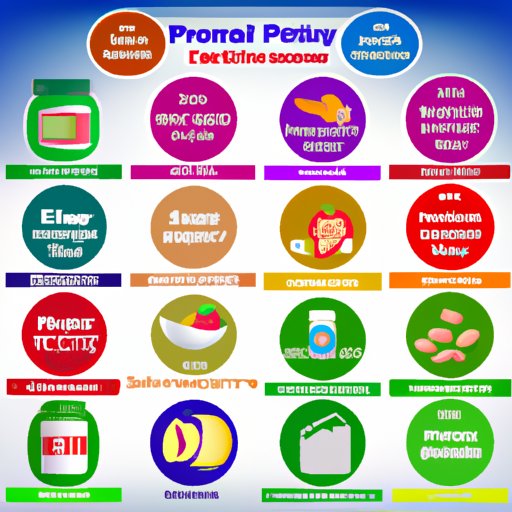Introduction
The American Dietetic Association defines nutrition as “the science of food and its relationship to health.” In other words, nutrition is the study of how food affects our body’s functions, from digestion and metabolism to immune system functioning and cognitive development. As such, nutrition encompasses not only what we eat but also how and when we eat, as well as how our body processes and utilizes the nutrients consumed.
Having a basic understanding of nutrition is important for making informed decisions about our diet and lifestyle. According to Dr. Michael Greger, a physician, author, and founder of NutritionFacts.org, “Good nutrition is the single most important factor for maintaining health and preventing disease.” By making healthy nutritional choices, we can improve our physical, mental, and emotional wellbeing.
Exploring Nutritional Science
Nutritional science has identified two major categories of nutrients: macronutrients and micronutrients. Macronutrients are nutrients that our bodies need in larger amounts, such as carbohydrates, proteins, and fats. Micronutrients, on the other hand, are nutrients that our bodies need in smaller amounts, such as vitamins and minerals.
In addition to these two categories of nutrients, there are also dietary guidelines that provide guidance on how to eat for optimal health. The United States Department of Agriculture (USDA) recommends a diet that consists of 45–65% carbohydrates, 10–35% protein, and 20–35% fat. Additionally, the USDA recommends eating a variety of foods from each of the five major food groups: fruits, vegetables, grains, proteins, and dairy.

Eating for Health and Wellbeing
Making healthy nutritional choices can have a significant impact on our overall health and wellbeing. Eating a balanced diet rich in essential nutrients can help support our immune system, maintain a healthy weight, improve cognitive function, and reduce our risk of chronic diseases such as heart disease and diabetes.
According to a 2012 study published in the Journal of the Academy of Nutrition and Dietetics, “A healthy diet is associated with improved health outcomes, including lower morbidity and mortality, improved quality of life, and decreased healthcare costs.” Furthermore, the study found that following a healthy diet can also help reduce stress, improve mood, and increase energy levels.
Making Sense of Food Labels
When shopping for food, it is important to read nutrition information on food labels. This information can help us make informed decisions about what we buy and eat. Food labels typically include information on calories, total fat, saturated fat, trans fat, cholesterol, sodium, total carbohydrates, dietary fiber, sugars, and protein.
It is important to note that this information is based on serving sizes, which vary by product. Therefore, it is important to pay attention to serving sizes when interpreting nutrition facts. Additionally, it is important to read ingredient lists to identify any potential allergens or hidden sources of sugar, salt, or unhealthy fats.
Superfoods and Supplements
The term “superfoods” refers to nutrient-dense foods that are believed to offer health benefits beyond basic nutrition. While there is no scientific definition of a superfood, some common examples include blueberries, salmon, kale, and quinoa. However, it is important to recognize that no single food can provide all of the nutrients our bodies need.
In addition to consuming a balanced diet, some people may choose to take nutritional supplements to ensure they are getting adequate amounts of certain vitamins and minerals. However, it is important to note that supplements are not a substitute for a healthy diet and should be taken only under the recommendation of a healthcare provider.
Conclusion
Nutrition is a complex science that plays an important role in our overall health and wellbeing. From understanding macronutrients and micronutrients to interpreting food labels and making sense of superfoods and supplements, there is a lot to learn about nutrition. By taking the time to educate ourselves on the basics of nutrition and making healthy dietary choices, we can improve our physical, mental, and emotional health.
As Dr. Greger reminds us, “You are what you eat.” By making smart nutritional choices, we can enjoy a healthier and happier life.
(Note: Is this article not meeting your expectations? Do you have knowledge or insights to share? Unlock new opportunities and expand your reach by joining our authors team. Click Registration to join us and share your expertise with our readers.)
